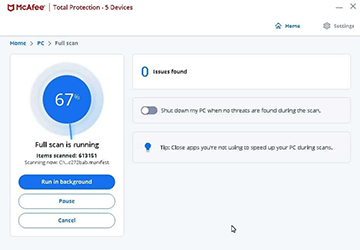6 Techniques to Improve Your Computer’s Performance
Do you spend much time staring at the spinning wheel next to your mouse cursor, impatiently waiting for a web page to load or a program to open? We all get frustrated when our trusty computers slow down and run sluggishly.
We all know the pain of a slow computer. Simple tasks like opening a web browser or document can test our patience when our devices aren't running at their best.

The good news is that making your computer faster and more efficient doesn't have to be complicated or require skills.
You can give your computer a new life with a few simple tweaks and continued careful maintenance. This blog post explains six techniques for improving computer performance.
So let's get started!
Identifying Slowdowns: Common Causes of Poor Performance
Before we can solve computer performance problems, we must first understand what is causing them. Some typical culprits are often the culprits:
Memory Overload occurs when there is little free space on your hard drive, and your computer has to work overtime to access data. Reduce unnecessary files and programs.
● Outdated hardware/software: Newer versions run smoother. Replace ageing parts whenever possible.
● Too many background processes: These processes consume RAM and CPU usage. Remove or turn off unnecessary processes.
● Malware infections from malicious websites and links: Use protection software to detect and eliminate viruses.
6 Top Tips to Improve Performance
Are you ready to roll up your sleeves and start optimizing? Here are six effective ways to improve your computer's speed and responsiveness:
1. Adjust visual effects
Nice animations like fading windows look nice, but they take up resources. If you have other priorities besides appearance, consider turning off some visual effects. Windows visual effects, such as animations, consume resources. If you weaken them, the energy is freed up for actual tasks:
● Search for "Customize Windows appearance and performance."
● Select "Adjust for best performance".
● It turns off effects like fade/slide animation.
The trade-off between slightly dull aesthetics is a significant increase in speed and efficiency. Try it!
2. Delete unnecessary files
When memory is complete, your computer lags and searches through everything to read and store data. Create more space for efficient work:
● If you don't need the files there, empty the trash
● Delete old, unused programs, media and documents
● Find and remove duplicates using storage optimization tools
Consider adding more RAM or solid-state drive (SSD) storage for faster data access
3. Disable unused startup programs
Too many apps running in the background at startup can cause problems. For optimization:
● Type “Run” in the Windows search bar and click to open it
● Enter "msconfig" and press Enter to open the system configuration tool
● Go to the Home tab and turn off apps that don't need to be launched immediately
● Click OK and restart your computer
4. Update your software
Outdated applications and operating systems may need help with performance issues. Upgrading to the new version made everything run smoothly.
● Set your operating system and frequently used applications to update automatically.
● Or manually check and install updates regularly
● Update device drivers, especially graphics card drivers
Set applications and operating systems to update or manually install the latest versions automatically. Also, update drivers for critical components like your graphics card.
5. Run an antivirus scan
Viruses and malware can silently slow down your system. Use trusted antivirus software to catch and isolate malicious attacks.

● Set up automatic weekly scans.
● A comprehensive deep scan of your system once a month
● It protects sensitive files and optimizes performance.
6. Clear browser cache
Web browsers store temporary data about the websites you visit, which accumulates over time and degrades performance. Clear cookies and cache regularly to improve speed. You can also enable private browsing mode while browsing to prevent this type of data collection.
● Find the settings menu in your browser
● Search for "clear cache" and delete the file
● Enable private browsing mode to prevent future cache collection
● Removing excess data forces your browser to run leaner and faster.
Summary: Improve computer performance
When faced with frustratingly lethargic technology, our first reaction may be to buy a new device. However, simple tweaks can breathe new life into an outdated computer, often for free.
Optimizing your device not only helps you work and play more smoothly every day, but it also extends the life of your computer by reducing overload.
Frequently applying these adjustments can prolong the freshness of your system. Don't take your time with a slow computer; use these tips today!